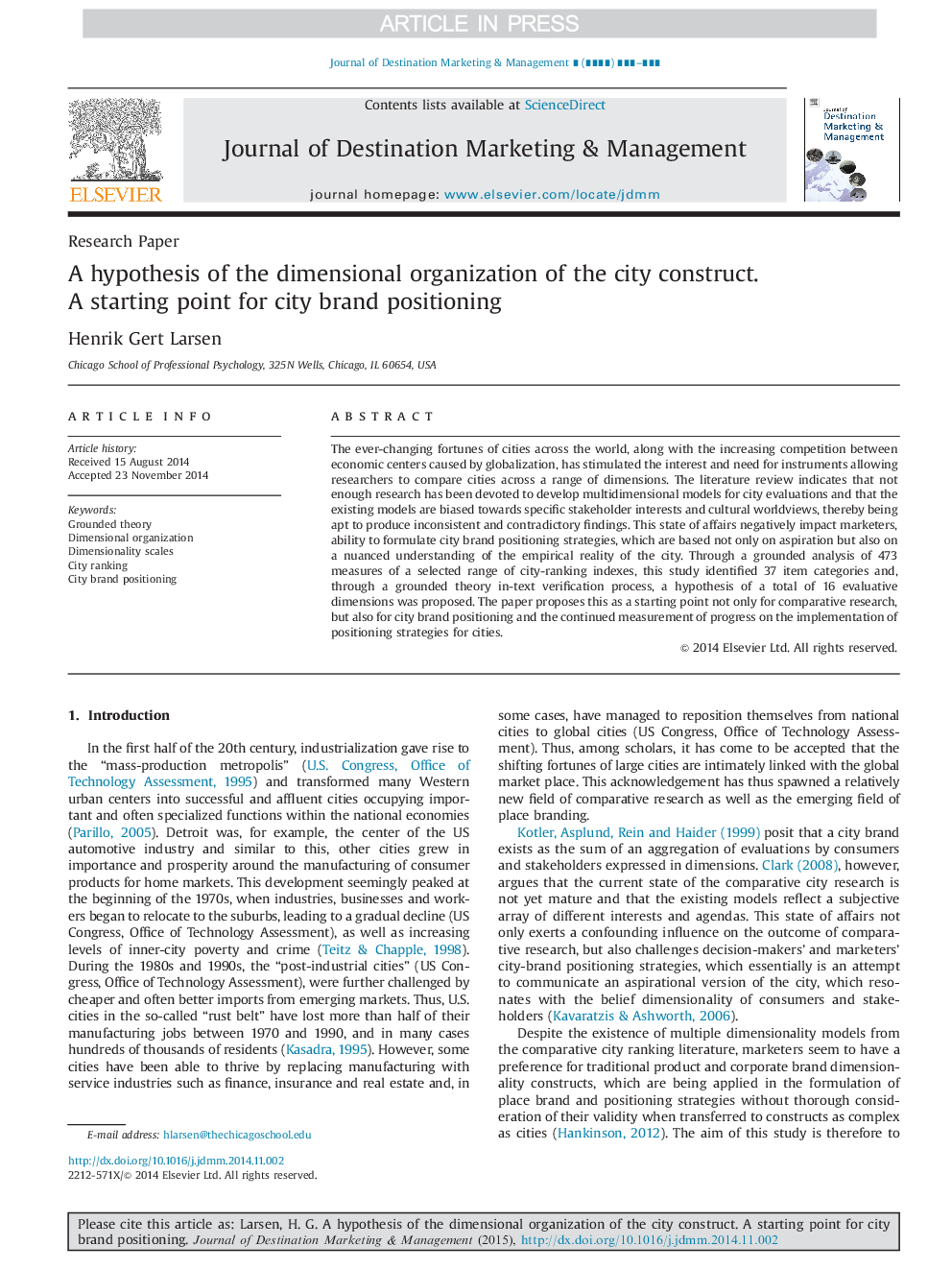| Article ID | Journal | Published Year | Pages | File Type |
|---|---|---|---|---|
| 10490379 | Journal of Destination Marketing & Management | 2015 | 11 Pages |
Abstract
The ever-changing fortunes of cities across the world, along with the increasing competition between economic centers caused by globalization, has stimulated the interest and need for instruments allowing researchers to compare cities across a range of dimensions. The literature review indicates that not enough research has been devoted to develop multidimensional models for city evaluations and that the existing models are biased towards specific stakeholder interests and cultural worldviews, thereby being apt to produce inconsistent and contradictory findings. This state of affairs negatively impact marketers, ability to formulate city brand positioning strategies, which are based not only on aspiration but also on a nuanced understanding of the empirical reality of the city. Through a grounded analysis of 473 measures of a selected range of city-ranking indexes, this study identified 37 item categories and, through a grounded theory in-text verification process, a hypothesis of a total of 16 evaluative dimensions was proposed. The paper proposes this as a starting point not only for comparative research, but also for city brand positioning and the continued measurement of progress on the implementation of positioning strategies for cities.
Keywords
Related Topics
Social Sciences and Humanities
Business, Management and Accounting
Business, Management and Accounting (General)
Authors
Henrik Gert Larsen,
